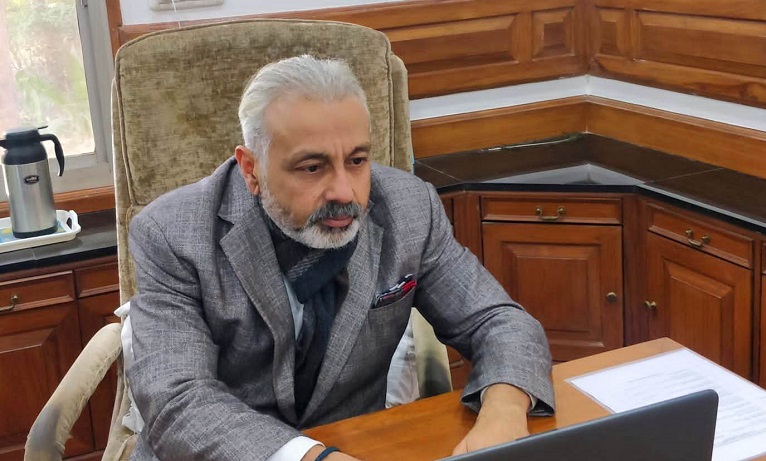Hybrid learning: The future of education – Anoop Bishnoi
COVID-19 Pandemic has affected millions of students around the world, as a reaction, we all observed a major shift in the mode of learning – from traditional face-to-face to remote (distance) learning. This very shift has brought to light the vast systemic inequalities that exist within our educational system, one of which is the lack of access to digital infrastructure and technologies. Now when things are slowly getting back to the ‘new’ normal, we can see the impact of this shortcoming on the learning outcomes of the students. To bridge this gap, we need to have an integrated learning model that blends the traditional classroom learning with online learning.
Digital Technology is an important tool to
revive the educational infrastructure, but how important and urgent is it to
include it in a balanced learning approach? To get an idea of what would be the
first reaction of someone who’s passionate about bringing educational reforms,
we discussed the same with Anoop Singh Bishnoi – an entrepreneur and philanthropist.
He is the Chairman of JDS School and Friends of Round Square (now Forum of
Regional Schools). His foundations are doing everything they can to help
hardworking students achieve their dreams, from providing scholarships to
distributing funds. Furthermore, the family foundation is in the process of
establishing a school, skill development center, and degree colleges in the
district.
Here's what Anoop Bishnoi has to say about the hybrid learning model, “As a result of the unprecedented global crisis, the 'online' method of academic instruction opened up enormous opportunities for learning for educators all over the world. I believe that we should definitely have a hybrid model in school, as it will not only help bridge the learning gaps between students at different levels but also upskill the teachers as they are the foundation of every education system. The hybrid learning model will help combine the benefits of increased flexibility, and immediate assessment feedback while also allowing artificial intelligence to customize assessments to meet a variety of learning needs. It should be taken into consideration.”
The hybrid learning model has enormous
potential to expand into previously unimaginable areas of the education sector
prior to the COVID-19. Educators and educational institutions should leverage
the gains by making existing curriculums and assessments cohesive and adaptable
to a hybrid learning environment.




Comments
Post a Comment